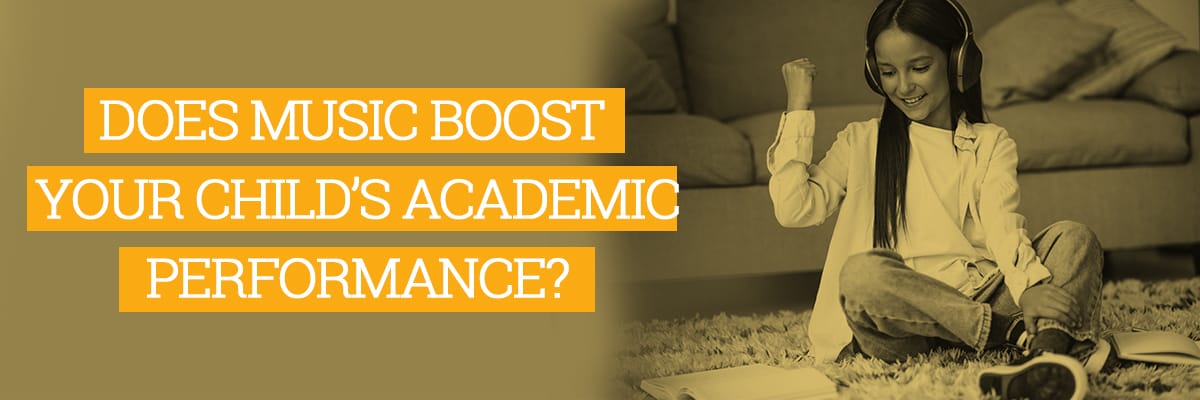
Does music boost your child’s academic performance?
Does listening to music while studying improve your child’s grades? Will it make your child a genius? Should your child study in silence or with music?
It seems like there are so many conflicting opinions about whether you should allow your child to listen to music while studying, and if you do, then how does music help your child academically?
Every parent is looking to find the connection between music and studying, as they do not want to compromise on their child’s passion for music as well as studies. Music is much more than just a source of fun; it is a big component of our lifelong learning.
When children listen to music, they use all parts of their brains and hearts to try and imitate the rhythm of the music they listen to. Music affects your child’s brain and heart, and creates a magical bond between them.
We're going to learn about the great benefits that music has on your child’s brain. When a child listens to music while doing physical exercise, the resistance can increase. Listening to music while studying makes children balance better, fortifies their muscles, and makes them more rhythmic and coordinated.
According to university studies, children who play musical instruments have better memories, more responsibility, and more consistency. They have better mathematical skills, greater expressiveness, and better hearing ability than the rest of the children.
When music is played, even when babies are not born yet and when they are still in their mother's womb, they become so excited that their hearts relax and their brains are activated. The best relaxing music for babies is like lullabies or classical music.
Music benefits the memory of your child. It helps them have happy moments in their lives. There are songs which we always remember. They are the songs of our lives. We believe that music is essential for education, and that's why we ask all parents and teachers to awaken a love for music in all children.
